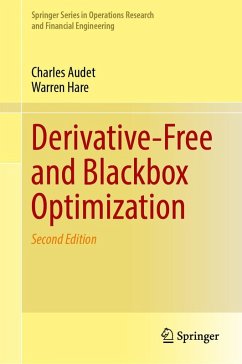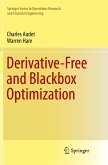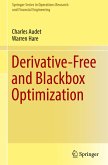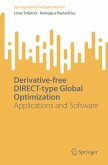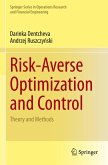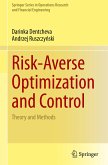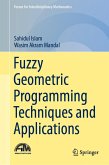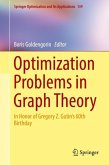The second edition of Derivative-Free and Blackbox Optimization offers a comprehensive introduction to the field of optimization when derivatives are unavailable, unreliable, or impractical. Whether you re a student, instructor, or self-learner, this book is designed to guide you through both the foundations and advanced techniques of derivative-free and blackbox optimization. This new edition features significantly expanded exercises, updated and intuitive notation, over 30 new figures, and a wide range of pedagogical enhancements aimed at making complex concepts accessible and engaging. The book is structured into five parts. Part 1 established foundational principles, including an expanded chapter on proper benchmarking. Parts 2, 3, and 4, take an in-depth look at heuristics, direct search, and model based approaches (respectively). Part 5 extends these approaches to specialised settings. Finally, a new appendix contributed by Sébastien Le Digabel, details several real-world applications of blackbox optimization, and links to software for each application. Whether used in the classroom or for independent exploration, this book is a powerful resource for understanding and applying optimization methods no gradients required.
"It is a wonderful textbook that can be used entirely or partially to support optimization courses. ... the authors have achieved gloriously their stated goal of 'providing a clear grasp of the foundational concepts in derivative-free and blackbox optimization.' ... I wish that it will find its way somehow to the desks of engineering design optimization practitioners." (Michael Kokkolaras, Optimization and Engineering, Vol. 20, 2019)
"This book targets two audiences: individuals interested in understanding derivative-free optimization (DFO) and blackbox optimization and practitioners who have to solve real-world problems that cannot be approached by traditional gradient-based methods. ... The book is written in a clear style with sufficient details, examples and proofs of theoretical results. The authors pay equalattention to careful theoretical development and analysis of the methods, and to practical details of the algorithms." (Olga Brezhneva, Mathematical Reviews, October, 2018)
"The authors present a comprehensive textbook being an introduction to blackbox and derivative- free optimization. ... The book is for sure a necessary position for students of mathematics, IT or engineering that would like to explore the subject of blackbox and derivative-free optimization. Also the researchers in the area of optimization could treat it as an introductory reading. Finally, the book would be also a good choice for practitionners dealing with such kind of problems." (Marcin Anholcer, zbMATH 1391.90001, 2018)
"This book targets two audiences: individuals interested in understanding derivative-free optimization (DFO) and blackbox optimization and practitioners who have to solve real-world problems that cannot be approached by traditional gradient-based methods. ... The book is written in a clear style with sufficient details, examples and proofs of theoretical results. The authors pay equalattention to careful theoretical development and analysis of the methods, and to practical details of the algorithms." (Olga Brezhneva, Mathematical Reviews, October, 2018)
"The authors present a comprehensive textbook being an introduction to blackbox and derivative- free optimization. ... The book is for sure a necessary position for students of mathematics, IT or engineering that would like to explore the subject of blackbox and derivative-free optimization. Also the researchers in the area of optimization could treat it as an introductory reading. Finally, the book would be also a good choice for practitionners dealing with such kind of problems." (Marcin Anholcer, zbMATH 1391.90001, 2018)

